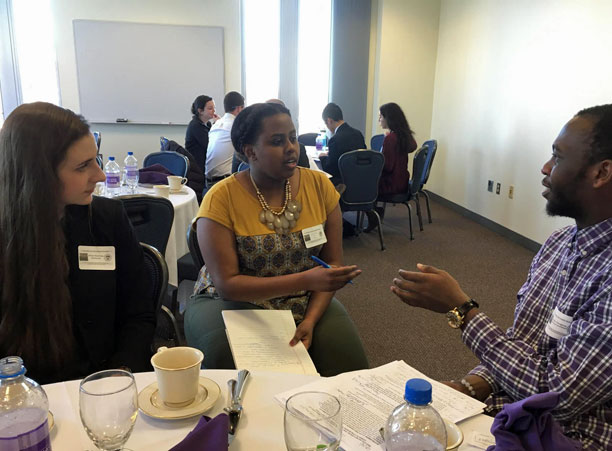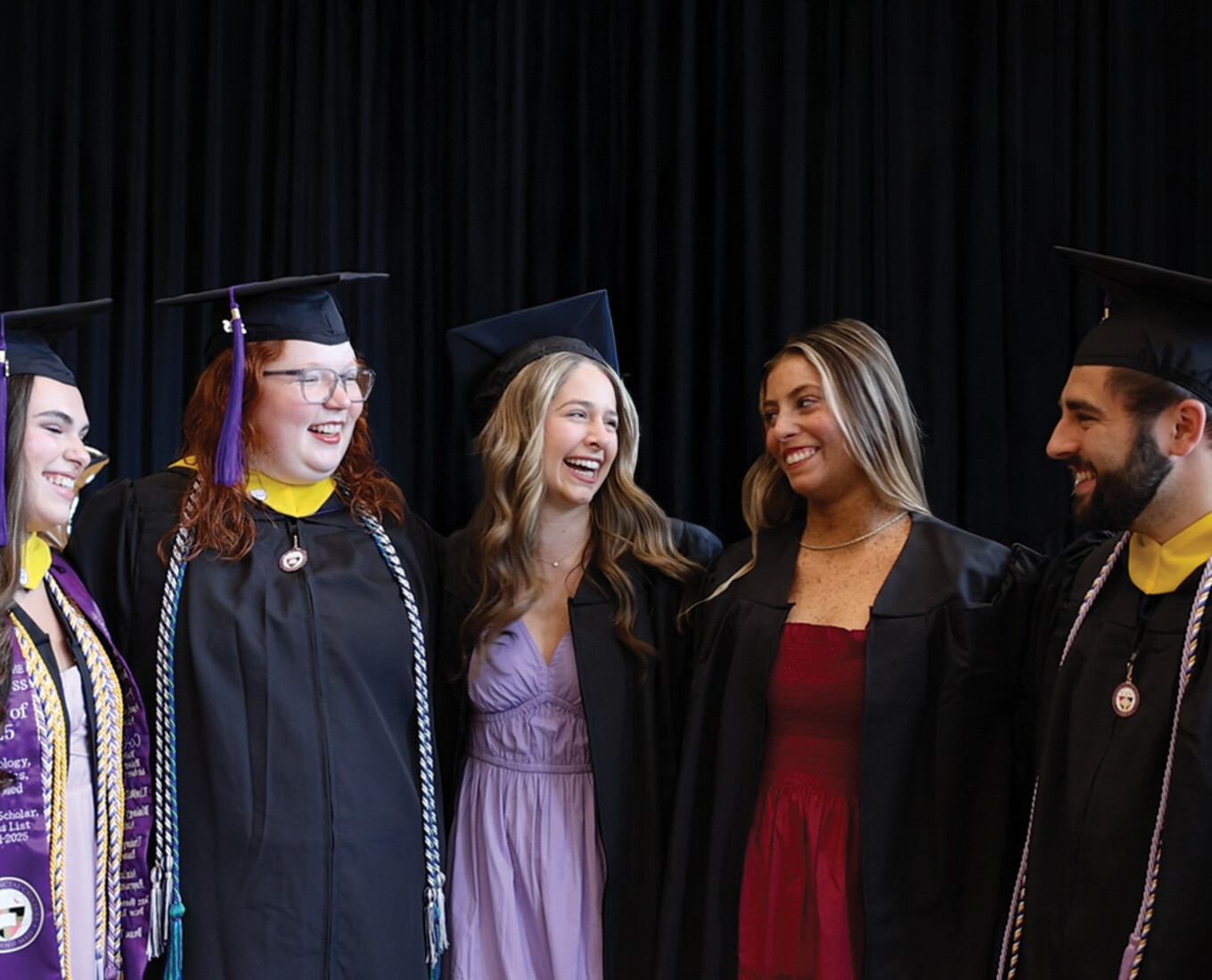 Fifteen Holy Cross students — from a range of class years and disciplines — spent a recent Saturday taking on a current hot-button topic: the U.S.-Mexico border issue. As a part of the Presidential Scholars Symposium, the students participated in a simulation where they adopted the roles of Mexican and U.S. government officials and special interest groups to resolve issues of undocumented immigration, drug trafficking, and cartel violence affecting people on both sides of the border. From playing the president of Mexico to the U.S. secretary of homeland security to an environmental protection representative, the students were challenged to intimately explore the real issues faced by both countries while honing their negotiation skills in a high pressure, time-sensitive environment.
Fifteen Holy Cross students — from a range of class years and disciplines — spent a recent Saturday taking on a current hot-button topic: the U.S.-Mexico border issue. As a part of the Presidential Scholars Symposium, the students participated in a simulation where they adopted the roles of Mexican and U.S. government officials and special interest groups to resolve issues of undocumented immigration, drug trafficking, and cartel violence affecting people on both sides of the border. From playing the president of Mexico to the U.S. secretary of homeland security to an environmental protection representative, the students were challenged to intimately explore the real issues faced by both countries while honing their negotiation skills in a high pressure, time-sensitive environment.
From the outside, resolving the border issue seemed manageable, but once they got down to it, students came to understand just how complex the issue is and faced some surprising hurdles. Hear from them below.
An Immersive Experience
“The simulation made the various U.S./Mexico issues much more tangible. Physically being immersed in the mindset of someone with a completely different view as me allowed me to expand my conditioned brain and therefore I started to better understand the complexity of the U.S. and Mexico relations. I particularly enjoyed the sense of power and the differential control groups and majorities that began to form. It really made the situation feel real.” – Christopher Minteer ’17, chemistry major
Understanding the Powers at Play
“I was assigned to one of the more marginalized characters in the simulation, playing the role of Javier Sicilia, a Mexican poet-turned-activist whose son was murdered in an act of gang violence. I found myself frustrated by the fact that in negotiations with people like the U.S. president and Mexican army general, my concerns for peace and human rights seemed trivial in light of national security concerns and economic development proposals. This helped me to experience firsthand the ways that power and status play out in political negotiations.
“I oftentimes have a hard time understanding why those in power do not always stand up for the poor and powerless, and the border simulation allowed me to see that those people are not necessarily ‘evil,’ but rather, have their own competing interests that prevent them from making the changes in the name of social justice. My character's task was to highlight the ways that the health and safety of the citizens on both sides of the border is indeed in the political interests of all the delegates — a task that I believe all of us at Holy Cross and beyond should be working for.” – Marie Therese Kane ’18, international studies major
Navigating Competing Core Interests
“My role was the environmental protection representative from the Sierra Club, and during my preparation I needed to create a poster on how border walls/fencing have caused serious environmental damage. However, it was only after the simulation started that I started to gradually notice that I was the only one whose interests would be directly harmed by the building of the border wall. For most other players, having a wall with entry points wouldn’t necessarily harm their interests. This made it really hard for me to get allies towards the end, and as I expected, even people I considered as allies eventually compromised to the building of the border wall for their core interests in the project.” – Xinyi Zeng ’17, environmental studies major, geosciences minor
Lessons Learned
“Although I did not leave the symposium with any answers to the border, cartel, and drug problems Mexico and America face, I did leave with an understanding that we need to face them together. By our power and prosperity, America is afforded a privileged opportunity to help those in need. By helping our southern neighbor combat this drug and cartel problem, we help ourselves.” – William Ford ’19, international studies major
The annual symposium provides an intellectually challenging forum for Presidential Scholars, who hold academic merit scholarships, to explore issues of public policy with their peers. Previous topics have included the college admissions process, global warming, U.S. immigration, global health issues, domestic violence, genocide prevention and the aftermath of the Haiti earthquake.
This year’s symposium was led by Bridget Franco, assistant professor of Spanish, and facilitated by Susan Elizabeth Sweeney, director of the College Honors Program and the College Scholar Programs, and professor of English.
Simulation Challenges Students to Explore Complexities of U.S.-Mexico Border Issue
Read Time
3 Minutes


